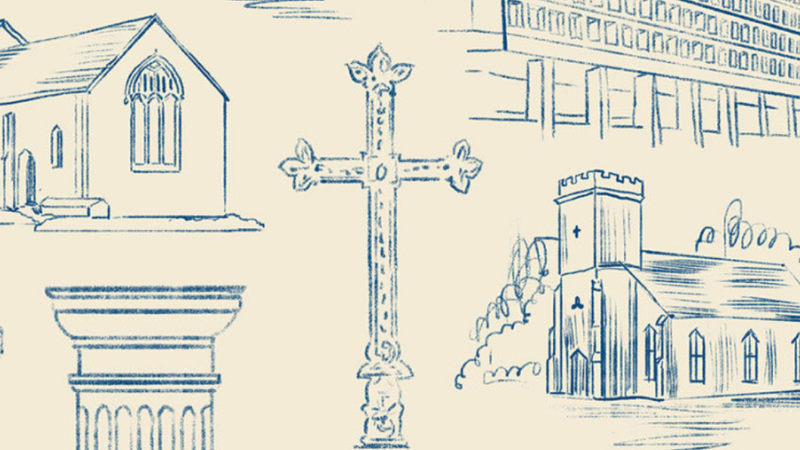So Jesus came out, wearing the crown of thorns and the purple robe. Pilate said to them, “Behold the man!” (John 19:5)
Pilate says more here than he realizes. We can understand when Peter, astonished and overwhelmed at Jesus’ control over the storm, exclaims, “Depart from me, for I am a sinful man” (Luke 5:8). His sense of Jesus’ otherness is driven not only by Jesus’ divine power over nature but by Peter’s awareness that Jesus is qualitatively different from any other human: Jesus is holy and righteous.
In Psalm 8:4, the psalmist speaks as a true human before the face of God when he utters, “What is man that you are mindful of him, and the son of man that you care for him?” In Hebrews 2:6, we find the definitive interpretation of this psalm. Here, the humanity of Christ—his perfect love of God and neighbor consummated in self-sacrifice—is interpreted as God’s nearness to us.
Yet, we can perceive God’s nearness as a threat. All our fears come down to this: We are afraid of Someone knowing our deepest secrets, our cherished transgressions, and our failures to fulfill our chief end. I can judge my life to be a success only if there is no God. This fact comes out powerfully in Friedrich Nietzsche through “the ugliest man” in Thus Spake Zarathustra (IV.67):
“But he—HAD TO die: he looked with eyes which beheld EVERYTHING,—he beheld men’s depths and dregs, all his hidden ignominy and ugliness.
His pity knew no modesty: he crept into my dirtiest corners. This most prying, over-intrusive, over-pitiful one had to die.
He ever beheld ME: on such a witness I would have revenge—or not live myself.
The God who beheld everything, AND ALSO MAN: that God had to die! Man cannot ENDURE it that such a witness should live.”
Thus spake the ugliest man.
Think about this for a moment. Nietzsche is not offering rational or evidential arguments against God’s existence. He is saying that the sort of God described in the Bible cannot exist because he will not let such a God live to judge his life.
Atheists and liberals tell us that the nagging source of guilt so many feel is just neurosis. But only the biblical law puts its finger on the problem, and only the biblical gospel announces the good news of God’s solution. It’s true that “perfect love casts out fear” (1 John 4:18), but only because God is the one who perfectly and lovingly satisfied God’s justice in God’s Son. Although we still fear God as sovereign, exalted above us in transcendent majesty, God is no longer an adversary. Instead of saying, “Depart from me, for I am a sinful person,” let us say, “You are the Christ, the son of the living God” (Matt. 16:16). In doing so, we will discover our own true humanity.





